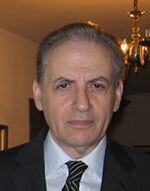 |
| Richard Koenigsberg received his Ph.D. in Social Psychology from the Graduate Faculty of the New School for Social Research. He is Director of the Library of Social Science. |
|
|
AWAKENING FROM THE NIGHTMARE
OF HISTORY:
Psychological Interpretation
of War and Genocide
by Richard A. Koenigberg
Read the complete paper here.
| Table of Contents |
| I. |
The Psychological Interpretation of Culture |
| II. |
Hitler's Ideology |
| III. |
War and Genocide |
| IV. |
The First World War |
| V. |
War as Sacrifice |
| VI. |
Training Soldiers to Die |
| VII. |
Like Sheep to Slaughter |
| VIII. |
The Psychopathology of War |
| |
Works Cited |
I. The Psychological Interpretation of Culture
A psychological approach to the study of society seeks to identify the sources and meanings of its cultural formations. For any ideology or institution, I pose the question: “Why does it exist?” To understand an element of culture requires uncovering the psychic function that it provides or performs. An ideology or institution comes into being, is embraced and perpetuated insofar as it does something (psychologically) for individuals within that society. |